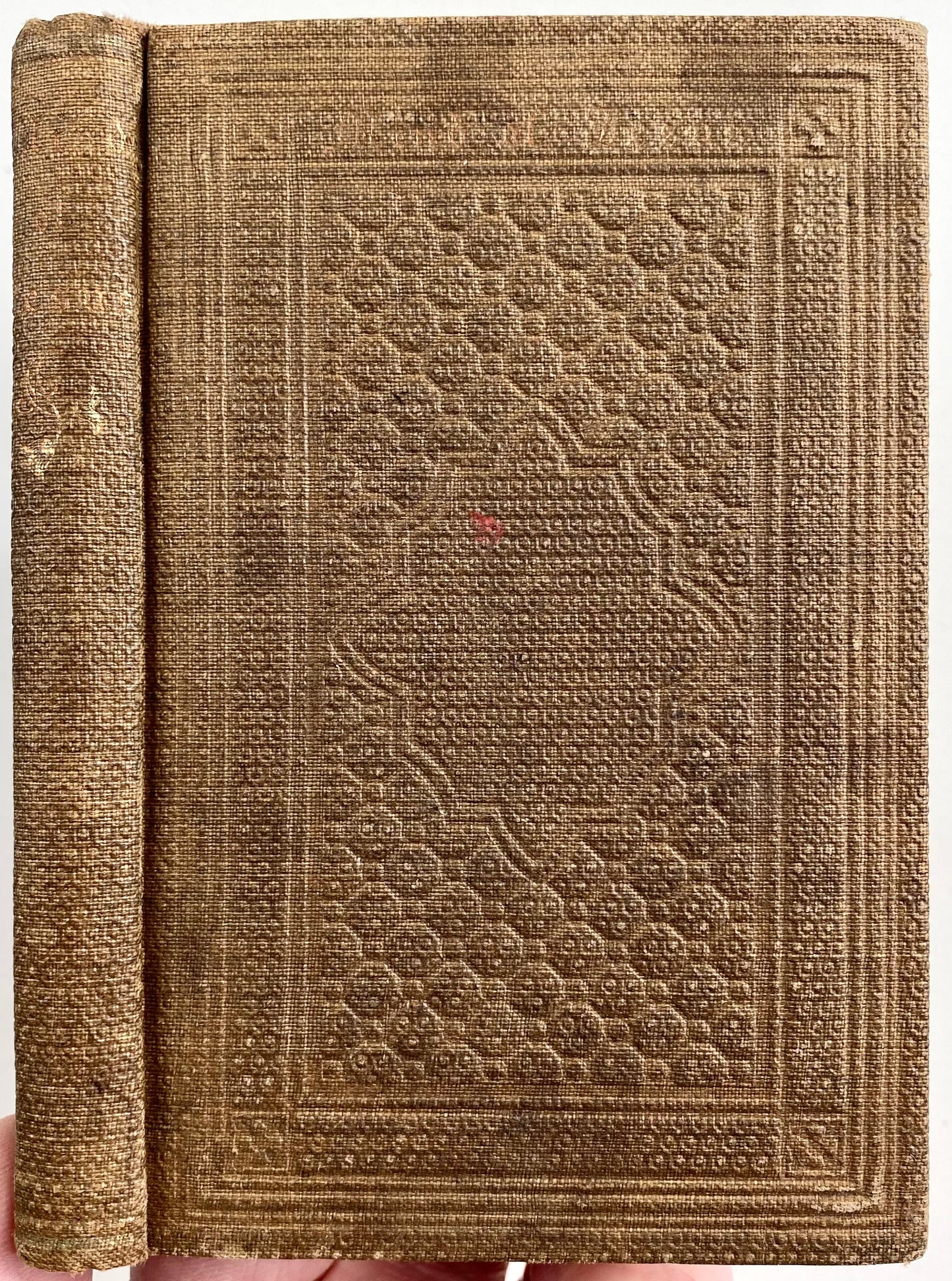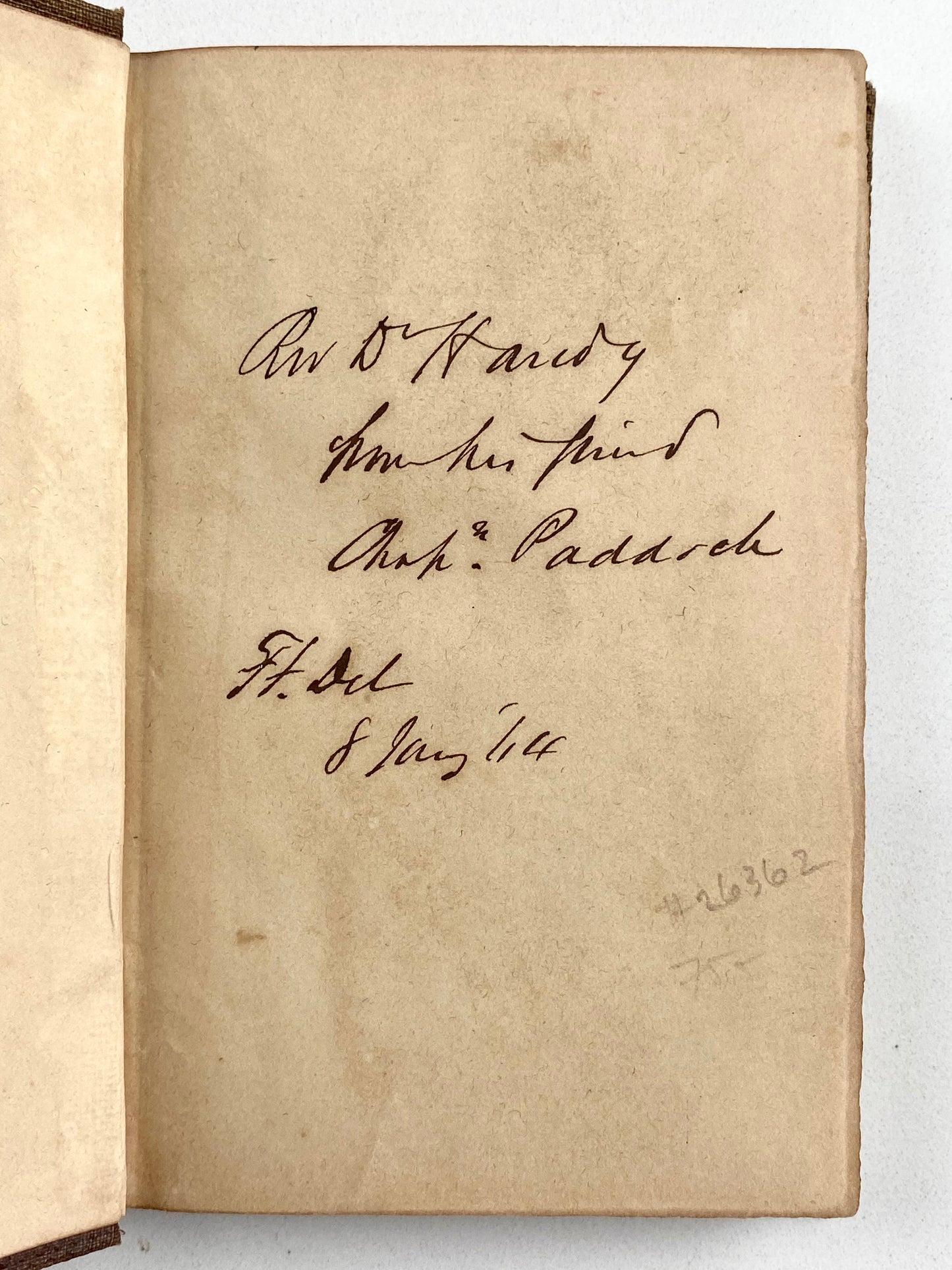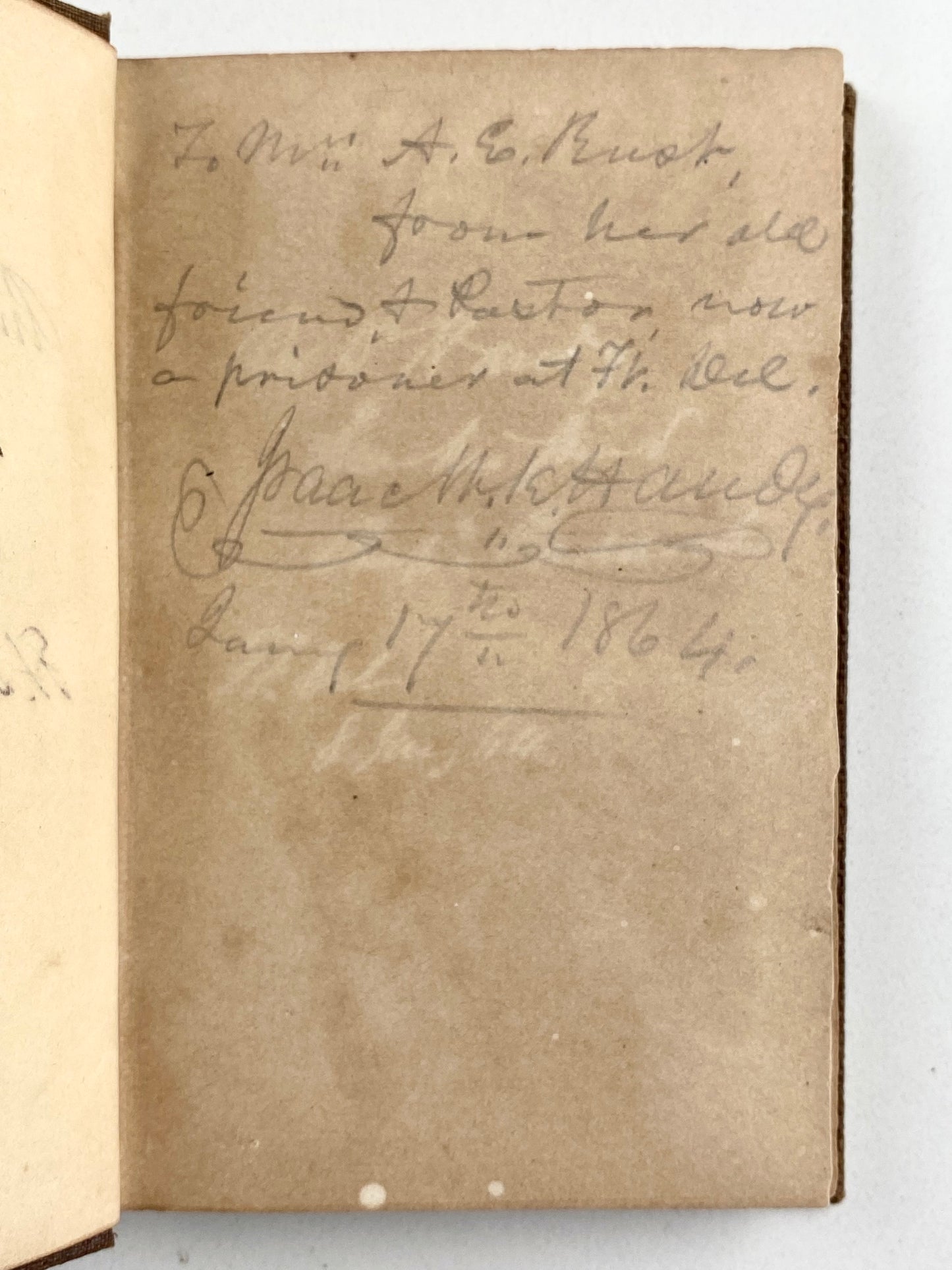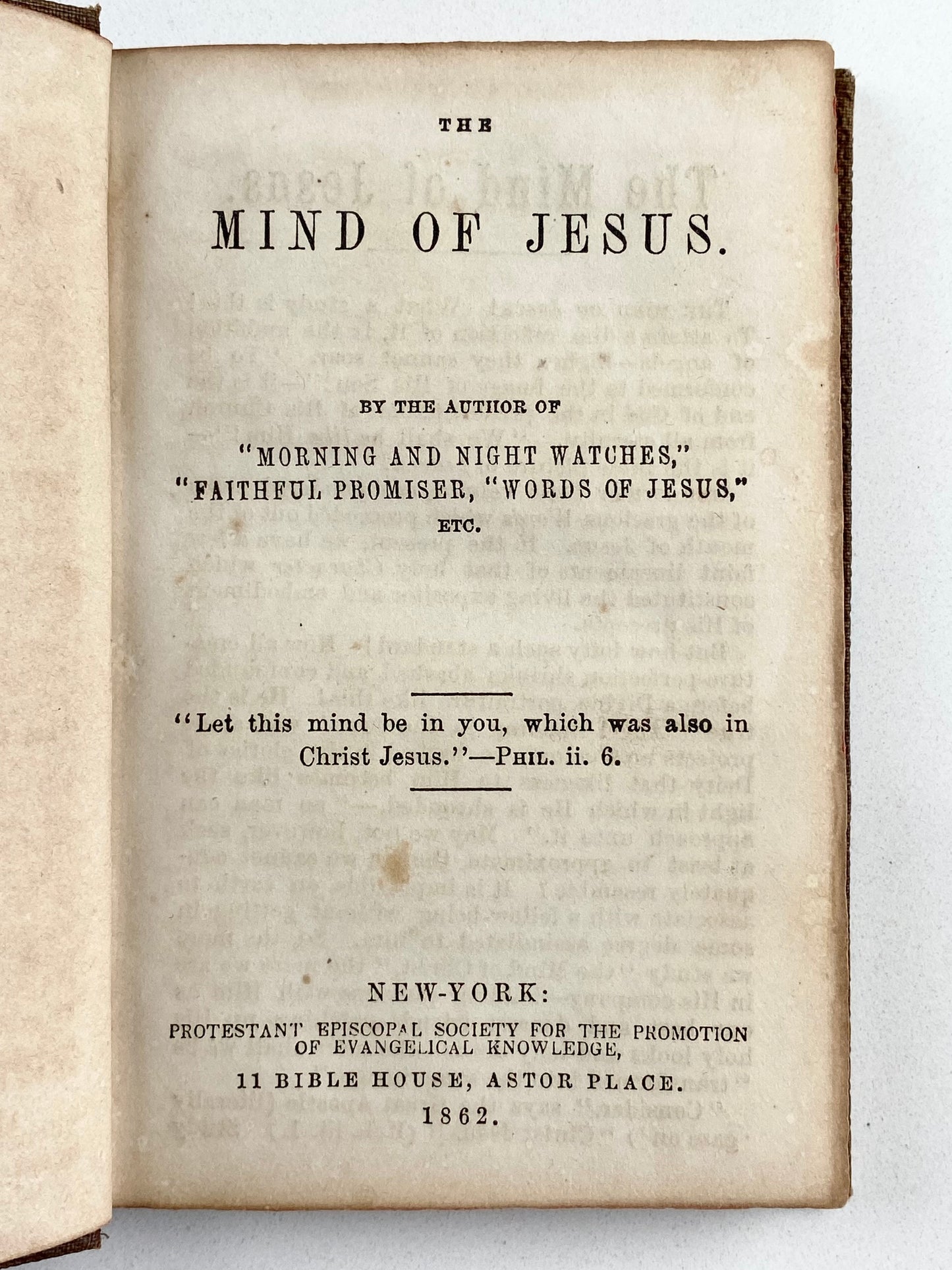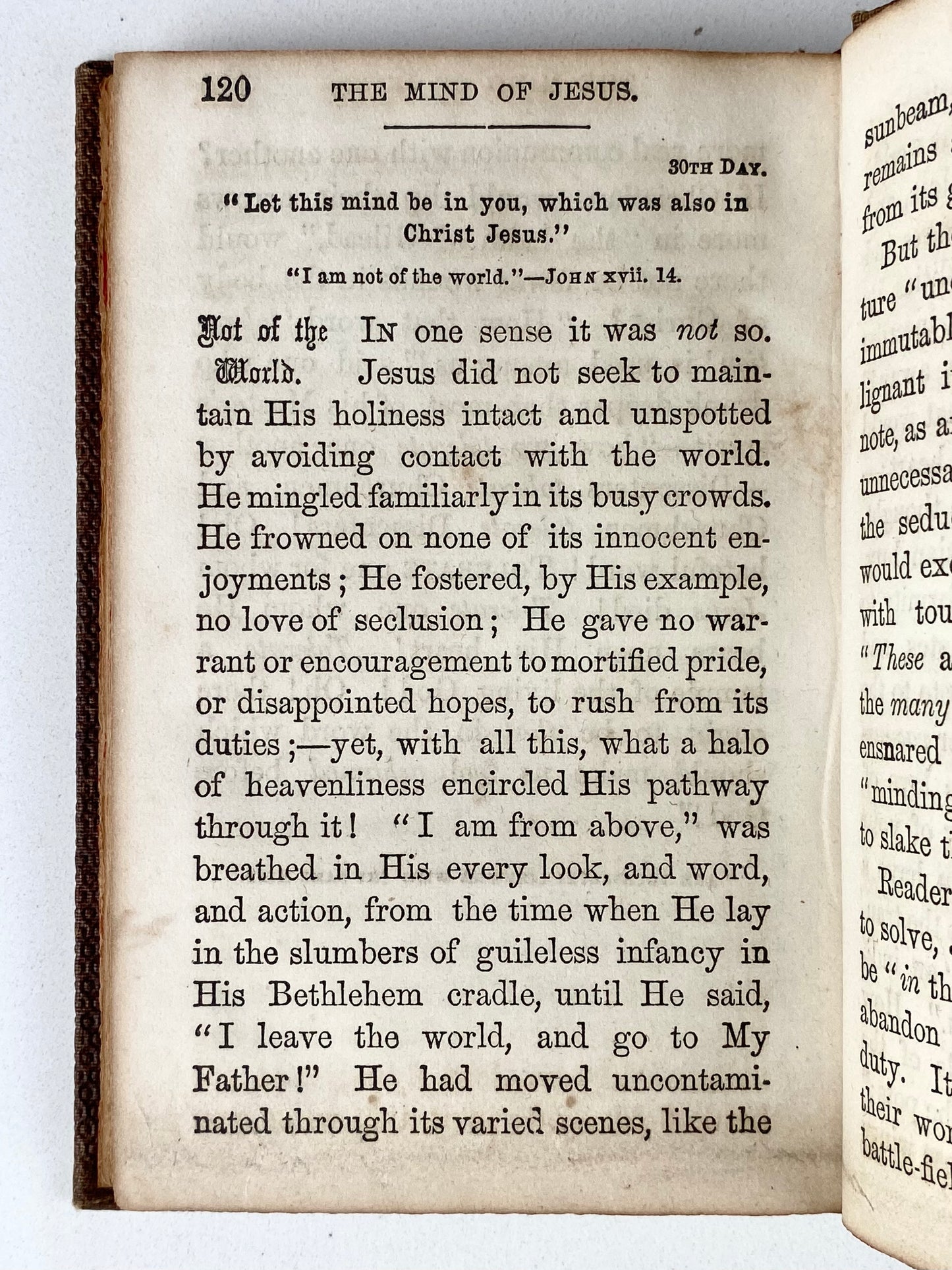Specs Fine Books
1862 CIVIL WAR. Rare Volume Gifted by Union Chaplain to Imprisoned Confederate Sympathizing Presbyterian.
1862 CIVIL WAR. Rare Volume Gifted by Union Chaplain to Imprisoned Confederate Sympathizing Presbyterian.
Couldn't load pickup availability
A really wonderful little survivor from the Union prison for Confederate soldiers at Fort Delaware. Presumably provided by the P.E.S.P.E.K. for distribution to prisoners, this particular example has a peculiarly interesting origin.
It's recipient wasn't just any Confederate captured and held at For Delaware, it was a gift from one pastor to another.
The giver who inscribes it to his "friend," was Rev. William H. Paddock, who had been Episcopal divine in the Episcopal evangelical hotbed of Pennsylvania. He was assigned Federal Chaplain at Fort Delaware Prison in June of 1863, just in advance of the arrival of the 17,000 Confederate troops captured at Gettysburg.
The recipient was Rev. Isaac William Kerr Handy [1815-1878], an important Civil War figure and later historian of the Prison at Fort Delaware.
In 1874 he published, United States Bonds or Duress by Federal Authority: A Journal of Current Events During an Imprisonment of Fifteen Months, at Fort Delaware1815-
Handy was a Virginia-born Presbyterian divine. In his published work, he decries his imprisonment as a southern sympathizer as unjust. Not so fast though, Rev. Handy. The Presbyterian church, after much debate, came out and formally opposed slavery. Handy, along with other Southern Presbyterian divines, was one of the founders of a southern branch of the church that favored Secession. He was outspoken and vocal, even when preaching or visiting family in the North. It was on one such visit, as a southern sympathizer and suspected spy, that he was arrested and imprisoned with the officers at the military prison camp at Fort Delaware.
The volume is inscribed by Paddock in sepia ink on the ffep, "Rev Dr Hardy from his friend, Chaplain Paddock. Ft. Del. 8 Jany '64" How "friendly" the two really were is of course a matter of conjecture, but Hardy's later writings would make us suspect the attempted good will of Paddock was not returned.
Then, inscribed on the flyleaf in pencil by Handy, "To Mr A. E. Rush from his old friend & Pastor, now a prisoner at Ft. Del. Isaac M. K. Handy. Jany 17th 1864." It seems Handy kept it a whole 9 days! The secondary recipient would have likely have been Abner Espy Rush, a Confederate Soldier also imprisoned at Fort Delaware and likely captured at Gettysburg. Or, as the pencil is a bit unclear, perhaps posted to the wife of Rush and it reading "Mrs." and "her."
MacDuff, J. R. The Mind of Jesus. New York. Protestant Episcopal Society for the Promotion of Evangelical Knowledge. 1862. 127pp.
For its origin in the Union Prison at Fort Delaware, very nicely preserved. Textually solid and crisp; some mottle discoloration to cloth, but very attractive still.
Share
